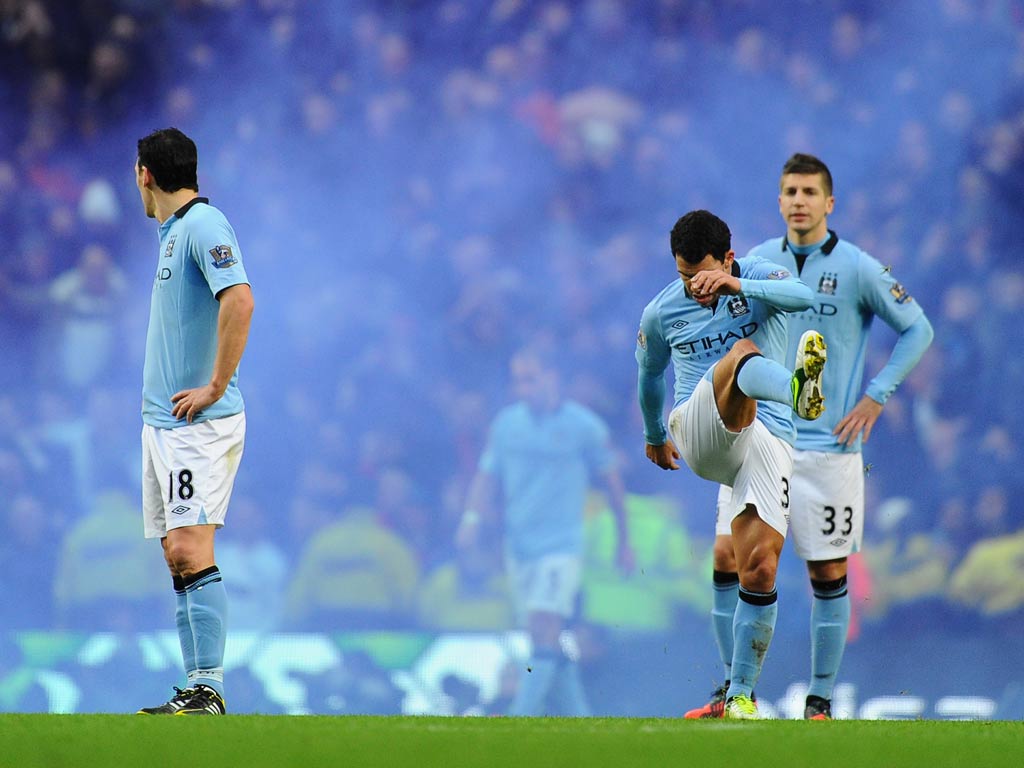Price of City away tickets is a parable for our age
In football you see some of the worst aspects of the rapacious capitalism that has driven people on to the streets in protest around the world


Your support helps us to tell the story
From reproductive rights to climate change to Big Tech, The Independent is on the ground when the story is developing. Whether it's investigating the financials of Elon Musk's pro-Trump PAC or producing our latest documentary, 'The A Word', which shines a light on the American women fighting for reproductive rights, we know how important it is to parse out the facts from the messaging.
At such a critical moment in US history, we need reporters on the ground. Your donation allows us to keep sending journalists to speak to both sides of the story.
The Independent is trusted by Americans across the entire political spectrum. And unlike many other quality news outlets, we choose not to lock Americans out of our reporting and analysis with paywalls. We believe quality journalism should be available to everyone, paid for by those who can afford it.
Your support makes all the difference.If you're not interested in football, you may well think that today's column is not for you. But, as the annoying woman in Miranda says, bear with... Because this story is, on a certain level, a parable for the modern world, for it reveals the way in which consumers who have little choice are being taken for granted, or, at worst, exploited.
It is also about the egregious, and growing, chasm between rich and poor. This is not about bank charges, or the rise in rail fares, or the cost of mobile phone calls, but it might have been. It is, on the face of it, a much more trivial story. Arsenal are at home to Manchester City in a Premier League match on Sunday, and City – a well-supported club – have been unable to sell a third of their ticket allocation for this important game. Why? Because Arsenal decided to charge £62 for a ticket, the most expensive price for a seat in the Premier League, and twice what they charged the supporters of Sunderland.
Many Manchester City followers simply couldn't afford it: with travel, it cost a family the same as a package holiday. Others refused to buy a ticket in protest, choosing to watch it on TV.
So, let us get this right: the supporters of a club who can afford a wage bill of £552,000 per day are being priced out of attending games. City's players can, if they so desire, splash out a new Bentley every week, but their fans can't – or won't – pay the money to watch them play. No wonder people say Premier League football exemplifies the inequalities and skewed priorities in society at large.
Our national game reflects the mores of the wider world, and in football you see the some of the worst aspects of the rapacious, unconscionable capitalism that has driven people on to the streets in protest here and abroad. The ordinary fan rejecting football? It will never happen, believe those who run the clubs: the fans need their fix, and they'll find a way to pay for it, just like they do for cigarettes, beer or lottery tickets. This is what underpins Arsenal's decision to charge £62 on Sunday.
By now, those of you who are not followers of a football team will have a simple response: it's an optional purchase, and if you can't afford it, then tough. But committed support of a football team is mostly not optional. It's in the blood, and we want to follow only them: we're not going to switch our allegiance because another club charges less at the gate.
In other words, we are inert consumers, like the customers of mobile phone service providers, or banks, or rail franchises. We almost don't notice – or can do little about – what we're being charged for a service we regard as essential.
But there comes a point... The consumer is more powerful these days, and maybe it's little acts of protest that will force a much-needed re-balancing of the system, and end these insidious acts of exploitation.
Join our commenting forum
Join thought-provoking conversations, follow other Independent readers and see their replies
Comments